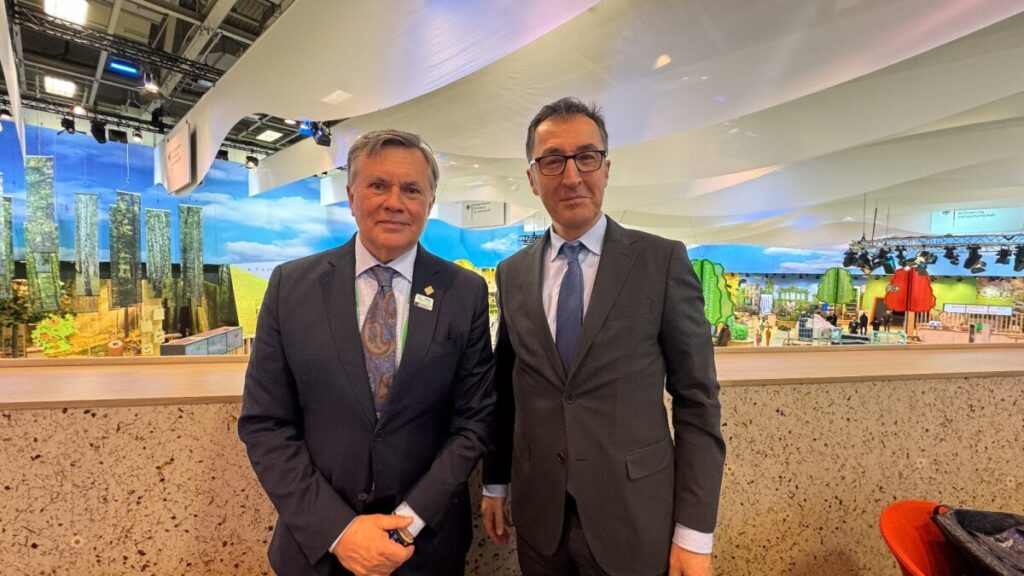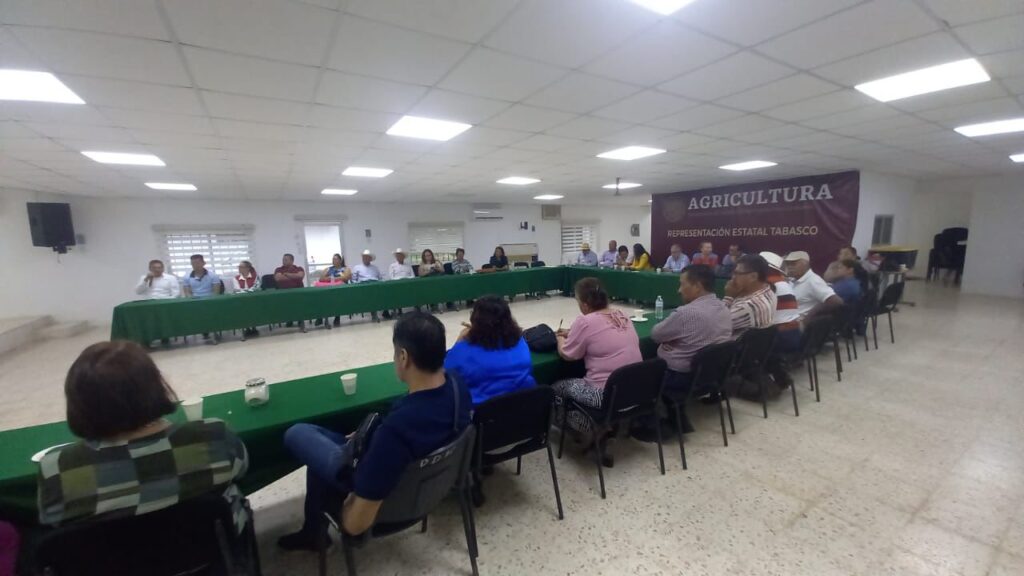El evento reunió a Tom Vilsack, ex secretario de Agricultura y titular del Consejo de Exportación de Lácteos de EE.UU., Ted McKinney, Subsecretario de Comercio y Asuntos Exteriores Agropecuarios del mismo país; Fritz Schneider, presidente de la Agenda Mundial para la Ganadería Sostenible; y Manuel Otero, Director General del IICA, entre otros especialistas.

San José, 23 de octubre, 2020 (IICA). La producción pecuaria y la proteína animal son esenciales para los sistemas agrícolas y las comunidades rurales en las Américas por su aporte a la seguridad alimentaria y nutricional de la población y al desarrollo económico, social, cultural y ambiental de la región, indicaron funcionarios y expertos convocados por el Consejo de Exportación de Lácteos de Estados Unidos (USDEC por sus siglas en inglés) y el Instituto Interamericano de Cooperación para la Agricultura (IICA).
Las perspectivas fueron emitidas en un seminario virtual de alto nivel organizado para compartir conocimiento científico, investigaciones y criterios técnicos sobre el importante papel de la producción pecuaria y la proteína animal en un sistema alimentario sostenible, además, de explorar oportunidades y desafíos del sector para el futuro.
En el seminario participaron Tom Vilsack, exsecretario de Agricultura de Estados Unidos y CEO del USDEC; Ted McKinney, Subsecretario para Asuntos Internacionales y de Comercio del Departamento de Agricultura de Estados Unidos (USDA, por sus siglas en inglés); Fritz Schneider, presidente de la Agenda Mundial para la Ganadería Sostenible; Manuel Otero, Director General del IICA, y más de una docena de expertos en la materia ligados a los sectores público, privado, la academia e investigación, entre otros.
En el evento de dos días se analizó lo vinculado con producción sostenible, innovación, investigación y desarrollo para apoyar esta actividad, las implicaciones de la proteína animal para la nutrición y para la salud humana, las perspectivas y prioridades de los agricultores, el desarrollo socioeconómico y la ganadería en las Américas, así como las percepciones de los consumidores sobre la ganadería.
“Hay que reconocer el trabajo del IICA en elevar el entendimiento de la importancia de la producción pecuaria y el aprecio por la proteína animal, no solo a nivel de producción sostenible, sino también, para reducir la pobreza y crear economías más fuertes en países en desarrollo. Nadie se pregunta que la proteína animal y la producción pecuaria pueden generar oportunidades de creación de riqueza en países y reducir la pobreza, y sobre su valor nutricional”, reflexionó Vilsack.
“Que la gente entienda el compromiso que tienen los productores en el hemisferio para tener una producción sostenible, para reducir los gases de efecto invernadero, el esfuerzo para bajar la huella de dióxido de carbono y que lo están haciendo”, agregó.
McKinney por su parte se enfocó en la importancia de la innovación “para aumentar la productividad de forma sostenible” en el sector cárnico y lácteo, y coincidió en que las dietas balanceadas no deben “enfocarse sólo en la parte vegetal y olvidar todos los productos que vienen de nuestro ganado y granjas avícolas”.
Los especialistas además coincidieron en que es vital basarse en la ciencia para la toma de decisiones, para las regulaciones, para apoyar la seguridad y la salud de los consumidores, y sobre todo brindar información certera sobre el rol de la producción pecuaria y la proteína animal en la nutrición, muchas veces sesgada por argumentos en contra de su consumo que carecen de sustento científico.
“Los sistemas de producción pecuaria son relevantes para todos los objetivos de desarrollo sostenible. La importancia de la ganadería para poder alimentar el mundo necesita enfatizarse una y otra vez y este seminario es un paso importante en esa dirección para una mejor preparación, dar evidencia científica es fundamental para una mejor preparación, para la salud planetaria, la resiliencia y un enfoque holístico”, acotó Schneider, presidente de la Agenda Mundial para la Ganadería Sostenible.
“La ciencia siempre será la respuesta para enfrentar información sesgada. Debemos ver la ciencia detrás de una producción pecuaria sostenible en las Américas para explicar cómo es que crea riqueza, desarrollo. Creemos firmemente que la producción pecuaria y la proteína animal son esenciales para los sistemas agrícolas y las comunidades rurales en todo el continente”, añadió por su parte Otero, titular del organismo especializado en agro y ruralidad.
En el seminario quedó en evidencia que la ingesta de productos de proteína animal es crucial para una dieta y nutrición de calidad, al ser fuente abundante de proteínas de alta biodisponibilidad, minerales y vitaminas esenciales.
Se indicó, por ejemplo, que el consumo de productos lácteos se vincula con un menor riesgo de enfermedades como diabetes tipo 2 e hipertensión, con una mejor densidad mineral ósea en niños y adolescentes y con beneficios cardiovasculares y musculares, aparte de mejorar la función inmunológica.
Además, a nivel socioeconómico, cerca de 800 millones de personas que viven en zonas rurales dependen de la cría de ganado y que el sector ganadero responde por un 46 % del PIB agrícola de Latinoamérica.
Otros de los efectos positivos de la industria pecuaria están vinculados con la reducción de la pobreza a nivel familiar y comunitario, el desarrollo socioeconómico y la creación de empleo.
Lo abordado en el webinar será compilado en una publicación del IICA que se presentará en la Cumbre sobre los Sistemas Alimentarios, prevista por la Organización de las Naciones Unidas (ONU) para sensibilizar a la opinión pública y entablar compromisos que transformen dichos sistemas, con el fin de erradicar el hambre y reducir la incidencia de enfermedades relacionadas con la alimentación deficiente.
El evento, las presentaciones y más información sobre el webinar está disponible aquí.
Más información:
Horrys Friaca, especialista internacional del Programa de Sanidad Agropecuaria e Inocuidad de los Alimentos (SAIA) del IICA.
horrys.friaca@iica.int










